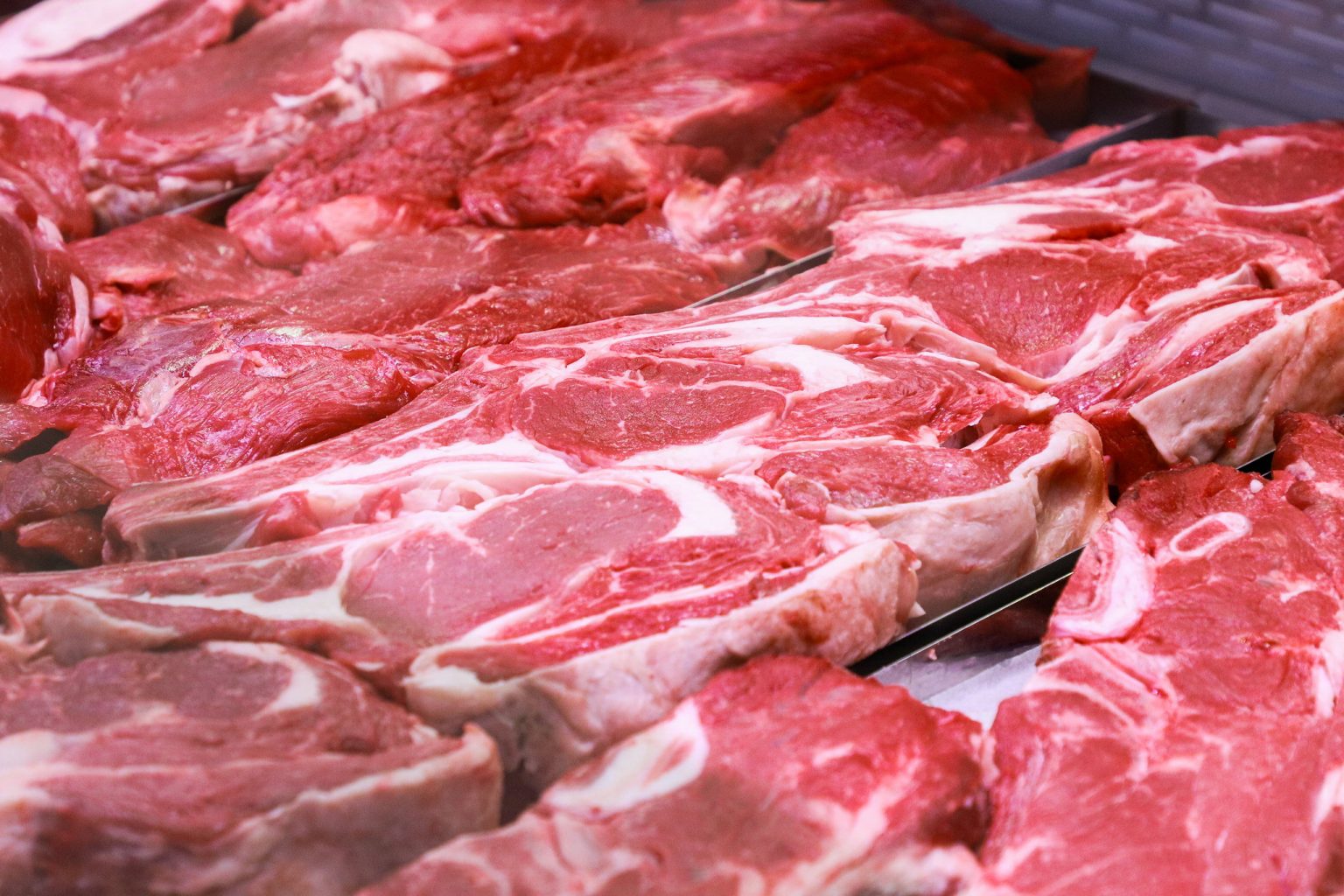Meat, commonly consumed daily despite its high price, still finds its way into every Nigerian home irrespective of class or status.
Many Nigerians would feel insulted if they are served food without meat and despite age, believe it should be eaten as long as one has teeth.
Sadly, many do not know the health status of cows or goats being slaughtered for sale at markets.
Cows are being brought mostly from the northern part of the country and sold to different parts of the country, most of the demand is met by pastoralists from the ethnic Fulani group, who follow traditional techniques of raising cattle, driving them south to pastures and taking them to markets.
According to government estimates, Nigeria consumes 360,000 tonnes of beef each year, accounting for half of all of West Africa.
In per-capita terms, consumption is low compared with advanced economies, but it is growing fast and is expected to quadruple by 2050.
As of 2017, Lagos alone consumed 6,000 cows a day, minus the figure at abattoirs, birthday parties and burial ceremonies, and so on. Port Harcourt, Umuahia, Abuja, Kano, Kaduna, and Maiduguri, when added will take the number of cows eaten per day to staggering numbers.
According to Statista, revenue in the meat segment amounts to $30.86bn in 2022, and the market is expected to grow by 8.79 percent (2022-2027).
Surprisingly, pork is mostly eaten globally with about 36 percent followed by poultry (35 percent), and cattle and goat (22 percent).
While Nigerians continue to enjoy beef, registered nutritionist/ dietician, Mrs Oluyemisi Akinsola, in an exclusive interview highlights red flags that Nigerians should look out for to know if they are eating a dead cow, the dangers of eating and how it can be avoided.
Akinsola acknowledged that meat is a good source of protein with the simplest form as essential (amino acids), which also helps in building body muscles.
“It is a good source of minerals such as iron (helps prevent anaemia), zinc (important for body growth and maintenance), selenium (an essential trace element that serves a variety of functions in your body),” she said.
She added that it is also a good source of vitamins such as vitamin B6 (for blood formation and energy metabolism), and vitamin B12 (for blood formation and your brain and nervous system).
Meanwhile, Mrs. Akinsola noted that meat consumption at a certain age is dependent on the meat type.
For 40years and above, she advised that the consumption of red and fatty meat be reduced and substituted for white meat (skinless chicken), games (rabbit, grasscutter, etc), and snail to mention a few.
She opined that meat preference over fish for Nigerians has to do with individual mentality. For some, meat is seen to be a food of affluence and is also said to be tastier than fish. For some, there are varieties (head, ribs, offals, hind, tail, etc) that can be taken compared to fish.
Akinsola noted that some dealers would rather sell dead or diseased cows rather than suffer losses.
She noted that dead meat is dark red with traces of blood in the muscle and the muscle tone will be firm when cooked or chewed.
“The health implication is that the dead meat is undergoing a level of deterioration producing harmful toxins which are detrimental to the health of the consumers,” she added.
She advised that government should put workable checks in the abattoir at all times like posting quarantine officers permanently to the abattoir for monitoring.
“And, if per adventure an animal is sick or dies by any means, there should be proper documentation by the quarantine officer and an insurance should be put in place to help reimburse such cow/meat seller as the case may be, rather than allow them in the market again,” she said.





